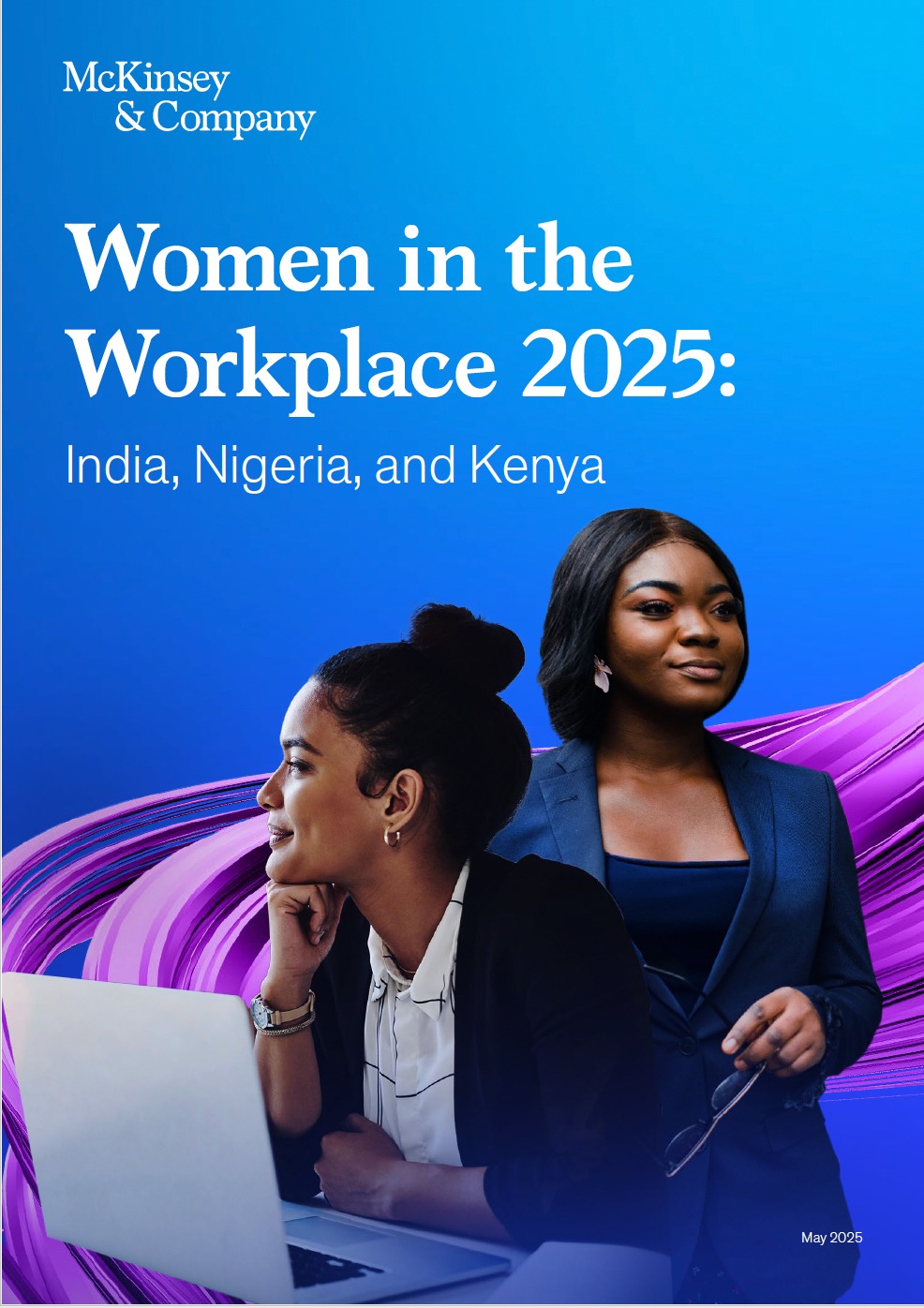…explain why women’s representation remains low across Nigeria’s formal private sector
McKinsey & Company today released its latest Women in the Workplace report, extending its landmark research series to Kenya, Nigeria, and India for the first time. Launched at the Africa CEO Forum 2025 today—the continent’s largest private sector convening—the research sheds new light on the systemic barriers affecting women’s participation in the formal economies of Nigeria, India, and Kenya.
Drawing on data from 324 organizations across Nigeria, India, and Kenya employing roughly 1.4 million people, the research reveals that women hold just 33% of entry-level positions in the Nigerian formal private sector – signaling that the gender gap is wide at the point of entry. Once women enter the workforce, their representation remains relatively steady across the pipeline, with 29% of both managerial and C-suite positions held by women.
Quote Placeholder:
“The data tells a clear story: Nigeria’s leadership gap is rooted in the entry-level barrier,” said Mayowa Kuyoro, Partner at McKinsey & Company and co-author of the report. “Once women are in the system, they advance steadily, but the path remains too narrow at the start.”
READ ALSO: DNA Saga: Cubana Chief Priest’s Alleged Baby Mama Threatens To Report Him To Deity [VIDEO]
Key findings for Nigeria:
Entry-level barrier: Only one in three entry-level formal sector roles are held by women, despite broader workforce participation.
Stable pipeline beyond entry: While women see a drop from entry-level to the managerial role (33% to 29%), women’s representation remains relatively consistent in the more senior ranks, with women holding approximately 28 to 29 out of every 100 roles from the manager to the C-suite level.
Senior women’s career fluidity: Senior women in Nigeria are more likely than men to be promoted but are also more likely to exit or make lateral moves.
Policies and practices are correlated with better outcomes in women’s representation across India, Kenya and Nigeria, but successfully implementing them is critical.
There is a set of baseline policies around safety and security and bias mitigation that are correlated with better outcomes for women that are already in place across a wide range of companies.
The report identified a set of differentiator policies that are not yet widely spread but are significantly more prevalent in better-performing companies on gender equity. Among better performing companies:
READ ALSO:6 Nigerian Banks Report N3trn Profit Amid Complaints, Challenging Environment
Flexible work options were 34% more likely to be present
Mentorship and sponsorship policies were 33% more likely to be present
Family and personal care policies were 23% more likely to be present
However, there were still a range of lower performing companies with many of the policies in place, highlighting the critical role of effective implementation.
• Moving from Commitment to Action
o While 77% of the organizations surveyed report gender diversity as a CEO priority, only 66% have in place basic tracking mechanisms – such as measuring hiring and promotion rates – and a mere 15% of boards hold accountability for gender equity.
• Three steps to kickstart progress for organizations
• The report proposes a three-part action plan – Diagnose, Design, Monitor – for Nigerian employers to foster progress:
1. Diagnose pipeline challenges through regular, disaggregated tracking of hiring, promotions, and attrition by gender.
2. Design: adopt, implement and evolve baseline and differentiator practices, with mentorship, sponsorship, and family care as priorities.
3. Monitor: Institutionalize tracking mechanisms and accountability at board and senior leadership levels to ensure gender equity is embedded in organizational performance.
